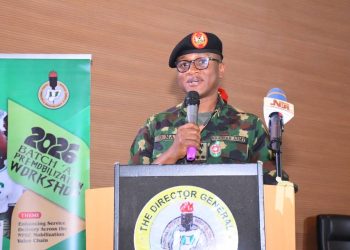By Nkechi Eze
The Civil Society Legislative Advocacy Centre (CISLAC), the national chapter of Transparency International Nigeria, has raised alarm over the rise in violent attacks and kidnappings targeting schoolchildren, warning that Nigeria’s worsening insecurity reflects serious structural failures within the country’s security institutions.
In a statement issued by its Executive Director and Head of Transparency International (Nigeria), Auwal Musa Rafsanjani, CISLAC said the pattern of recurring abductions in different states underscores what it described as an “uncoordinated and politicised” security architecture that is leaving millions of citizens vulnerable.
Rafsanjani noted that despite the constitutional mandate that places internal security responsibilities primarily on the police, the Nigeria Security and Civil Defence Corps and the Department of State Services, the Nigerian Army remains deployed across nearly all states. He said this overdependence on the military stems from years of neglect in the policing system, inadequate equipment, weak welfare structures and poor cooperation among agencies, factors he argued have collectively eroded Nigeria’s ability to respond to threats effectively.
CISLAC condemned the recent abductions of schoolchildren in Kebbi and Niger States, describing the attacks as direct violations of children’s rights and a major setback for national efforts to reduce the already alarming number of out-of-school children. Rafsanjani noted that the targeting of schools undermines education, traumatises communities and erodes public confidence in government’s ability to guarantee safety.
He also criticised the diversion of police officers to politicians and private individuals, stating that while vulnerable communities and schools remain unprotected, large numbers of officers are deployed for political convenience. He said the commercialisation of police checkpoints has further transformed vital security points into centres of extortion rather than protection.
Rafsanjani observed that the increasing politicisation of policing was evident in recent incidents in Abuja where officers were seen backing rival political groups. He said such behaviour, alongside the practice of assigning excessive numbers of officers to individuals instead of communities, reflects weakened institutional leadership and fuels irresponsible political conduct.
CISLAC and Transparency International (Nigeria) called for wide-ranging reforms across the security sector, stressing the need for accountability, improved intelligence gathering, upgraded equipment, enhanced welfare support and stronger interagency collaboration. Rafsanjani urged the government to adopt effective early warning and early response systems, arguing that many attacks occur despite ample indicators that could have been acted upon.
He also questioned the effectiveness of the Nigeria–U.S. Bi-National Commission, a bilateral platform for security and governance cooperation, insisting that Nigeria must first address its internal governance and security deficiencies before expecting meaningful external support.
Rafsanjani further decried the rising culture of political defections and lavish celebrations funded with public resources, describing such conduct as insensitive at a time when families are mourning loved ones, communities are being displaced and schoolchildren are being abducted.
The statement concluded with a call for urgent, coordinated action by the federal and state governments, security agencies, civil society, community leaders and international partners to secure the release of abducted schoolchildren in Kebbi and Niger, prevent further attacks and restore professionalism across security operations.
CISLAC warned that Nigeria cannot continue to function under what it called weak and fragmented security structures, insisting that decisive reforms are essential to protect citizens’ lives, dignity and future.
















